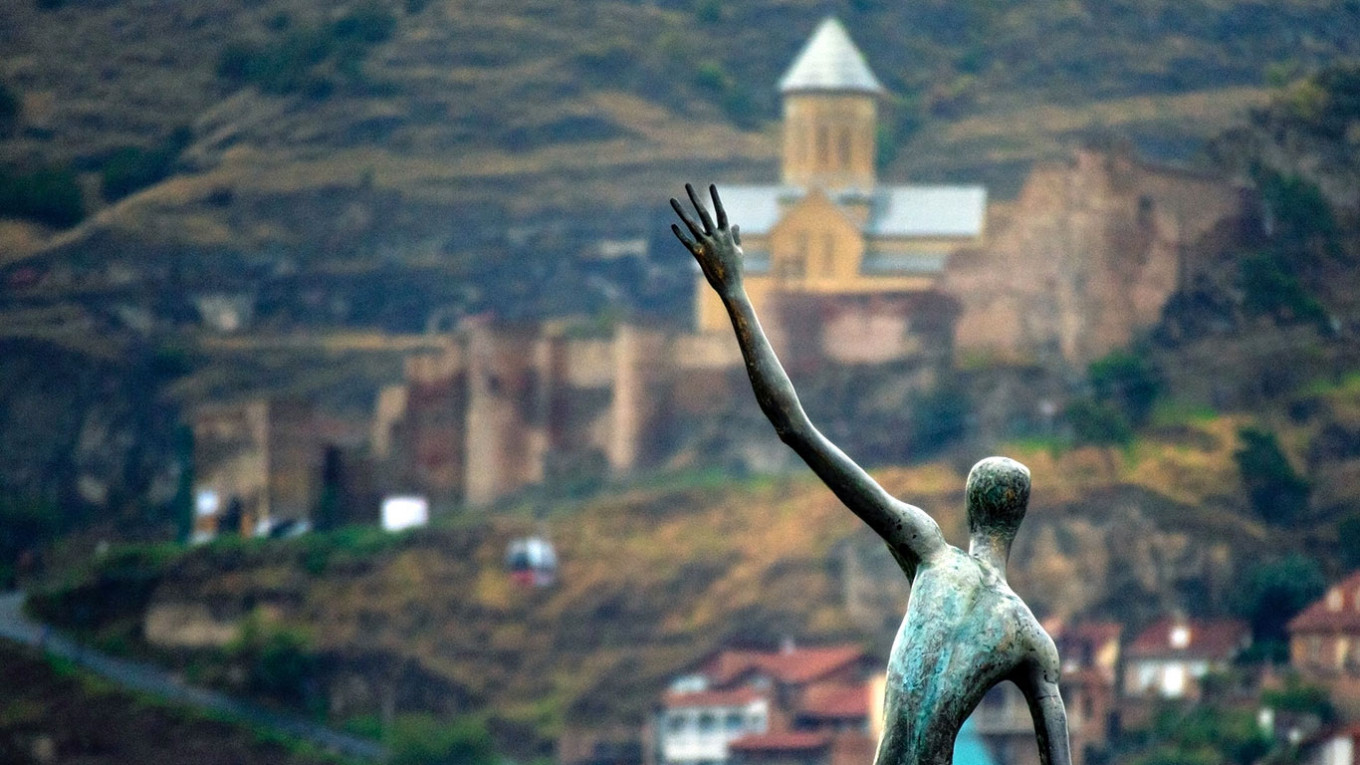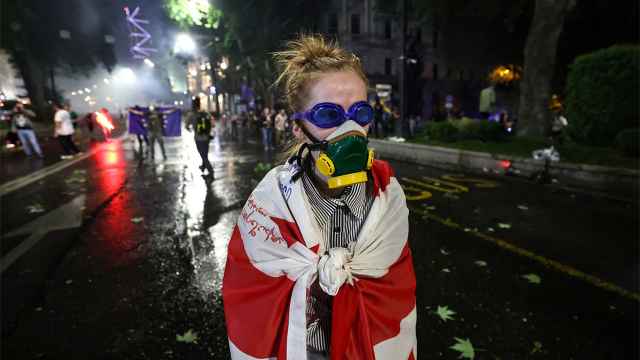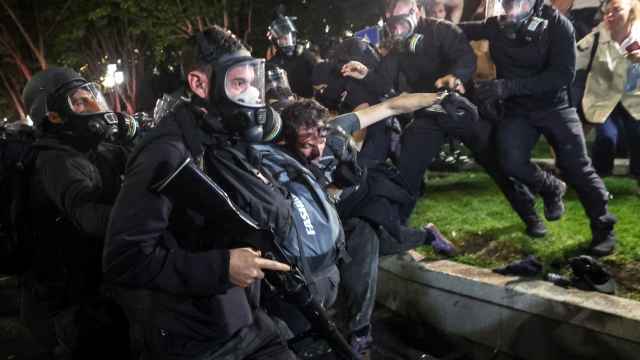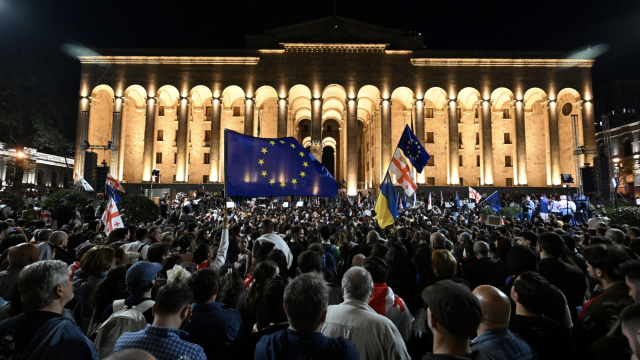TBILISI, Georgia — On a hot autumn day, a sun-baked Tbilisi square feels a world away from cold and blustery St. Petersburg, where Ivan Pavlov is used to running between courtrooms defending some of the Kremlin’s harshest critics.
“I have had to readjust my life, which has not been easy, I have had to start all over. But Georgia has been good to me,” Pavlov told The Moscow Times as he sat in a cafe serving khachapuri, the country’s famous cheese bread.
Pavlov is one of Russia’s most prominent defense lawyers, who has worked for high-profile clients including Kremlin critic Alexei Navalny and journalist Ivan Safronov. Pavlov himself was detained in April on charges of disclosing details of the treason investigation into Safronov, charges he denies.
Things became even more worrying, Pavlov said, when Team 29, an independent legal group he used to run, was declared an “undesirable” organization with foreign links this summer, and he was faced with the prospect of real prison time.
“The warning signs were building up rapidly and I realized I had to get out,” he said, adding that a court ruling had restricted him from using the internet.
Though police searched Pavlov’s apartment and confiscated a number of documents, they never took his passport.
“From experience, I knew that wasn’t a slip. They left it there to say ‘we want you gone’,” he said.
In early September, Pavlov bought a one-way ticket to Tbilisi and drove to the airport in St. Petersburg. He said the police shadowed him all the way.

Pavlov is one of many who have recently left Russia for Georgia due to the political situation in their homeland.
Russians have a long history of emigration during times of crisis and political crackdown.
In the aftermath of the Russian Revolution, hundreds of thousands of Russians emigrated and settled in the European capitals of London, Paris and Vienna. After the fall of the Soviet Union, businessmen and oligarchs flocked to London, while artists and creatives settled in Berlin and New York.
This time round, human-rights activists and opposition politicians have gravitated toward the Baltic states, with some of Alexei Navalny’s closest allies having settled there.
However, as the coronavirus pandemic complicated travel to the West for most Russians, the small, ex-Soviet Caucasian nation of Georgia quickly became the go-to place for political emigres during the late-Putin era.
“You lose count of the many people you know who moved here. You just see them in the street and think ‘oh, another one,’” said Michael Naki, a popular Russian blogger and political commentator who arrived in Tbilisi last April.
The list of those who have moved is diverse, and includes journalists who worked for outlets affiliated with Kremlin critic Mikhail Khodorkovsky, Russian libertarians and artists.
“There is a diverse Russian speaking community here with a common attitude toward the authorities back home,” said Alina Muzychenko, co-founder of fashion label and political art collective Kultrab.
Muzychenko and the rest of the Kultrab team decided to leave Russia in August after noticing they were being followed by police.
“The fact that even we were targeted speaks volumes about the repressions seen in Russia,” Muzychenko said.
Russian civil society faced a severe crackdown in the run-up to parliamentary polls in September.
Over the last few months, the Kremlin has slapped a "foreign agent" label on several independent media outlets and individual journalists, while Navalny’s countywide network was branded as “extremist.” Students, activists and artists have received real prison time for tweets that voiced support for protests against the government.
“As the Duma elections came closer, I realized I had three options: go abroad, self-censor or end up arrested and possibly jailed,” said Naki, who runs his own political program on Youtube.
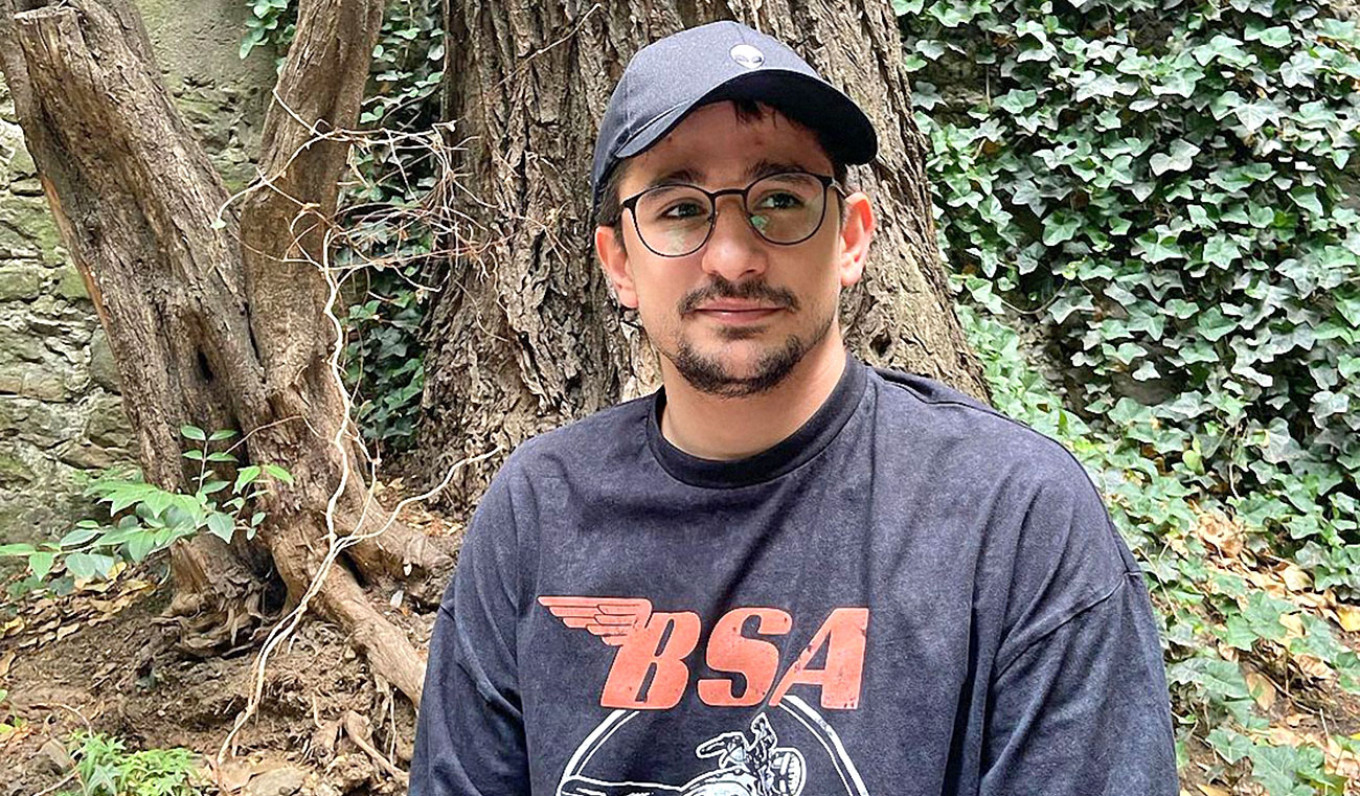
Nikolai Levshiz — who left Russia two years ago after his employer The Free Russia Foundation NGO was banned and now runs a popular Telegram channel for Russians in Georgia — said he has recently seen a new influx of his fellow citizens to Tbilisi.
“The visa-free regime, language, the climate and the cost of living are some of the reasons people chose the country.”
Russians are allowed to spend up to a year in Georgia, where you can rent an apartment for as little as $200-300 a month and the cost of living is cheap.
“But most important, of course, is the safety the country offers. We feel like Georgia will never send us back,” Levshiz said
Safety, however, has become a potential worry for some exiles and Georgians as of late, as critics of the ruling Georgian Dream party say it is taking Tbilisi into Moscow’s orbit while damaging democratic institutions.
“Georgia has always positioned itself as a haven for political refugees from the Post-Soviet World, including Russia, Azerbaijan and Belarus,” said Kornely Kakachia, the director of the Tbilisi-based think tank Georgian Institute of Politics.
“With elections coming up in October, the country is not as stable as it used to be and is going through political instability.”
Still, Kakachia believes, Georgian Dream or any other party aiming to court Russia would think twice before sending people back to Russia.
“It would likely provoke a huge wave of anger, and would just not be worth all the backlash,” he said.
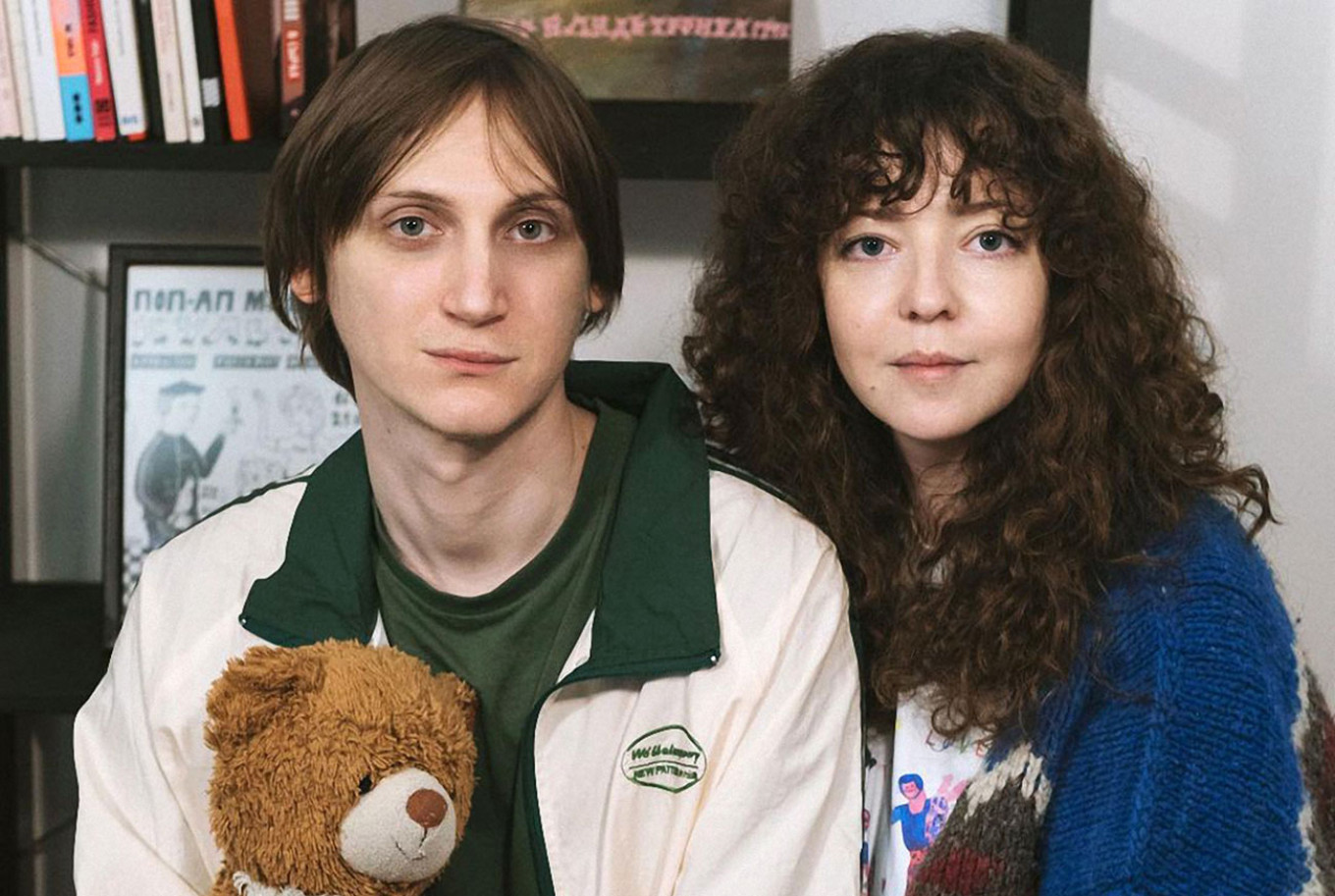
While many of the emigres The Moscow Times spoke to were open about their move to Georgia, others said they have to lie low.
In an apartment in a residential area of Tbilisi, several journalists and activists who have recently left Russia sat around a round table playing cards. Their lawyers have advised them not to publicize their move to Georgia yet.
“If we start to speak out, we could complicate the situation, which will limit our chances of ever returning,” one activist said under condition of anonymity.
Earlier this month, Russian state television channel Ren-TV aired a programme claiming links between Western security services and some of the recent emigres, demonstrating the authorities’ view of exiled Russians.
“If they’d seen us playing cards they would have said we had opened an illegal casino here with American money,” the activist joked.
Even more cautious are those who have fled Belarus, a country that has seen its own repressions against civil society following the controversial re-election of longtime president Alexander Lukasenko.
“I still have family back home. They could be targeted if the authorities find out I’m continuing my work as a journalist here in Georgia,” said Konstantin, a Belarussian journalist who asked for his last name to be withheld.
Konstantin, who estimates that at least 300-400 Belarusians have fled to Tbilisi, said he chose Georgia for its cost of living.
“With my income in Europe, I would be living in some grim slum. Here I can call myself a respectable expat.”

Not all Russian expats in Georgia are there because of concern for their safety.
For some, like Ivan Mitin, a 38-year-old entrepreneur from Moscow, the political and business climate was the pull.
Mitin founded Ziferblat, a popular pay-per-minute cafe chain, and the Bolotov Dacha, a boutique retreat in a village southeast of Moscow that offers guest houses and co-working stations in an eco-farm near a forest.
As Mitin saw Russia gradually tightening the screws on dissent, he decided his next project would be based abroad.
“When you run a successful business in Russia you can become too big, and you realize that the authorities will be watching you and will want something from you. You will have to play by their rules, something I didn’t want,” he said.
Mitin instead decided to purchase 27 acres of land in Kakheti, a picturesque region in the east of Georgia known for its wine, where he founded the Chateau Chapiteau initiative, a co-living and timeshare project that will include a hotel, a farm and restaurants.
“I wanted to be able to think and say what I want without having to look over my shoulder, something that Georgia allows me to do,” Mitin said.
He added that many of his friends who don’t consider themselves “radical oppositionists” have recently decided to leave Russia because of a “climate of fear.”
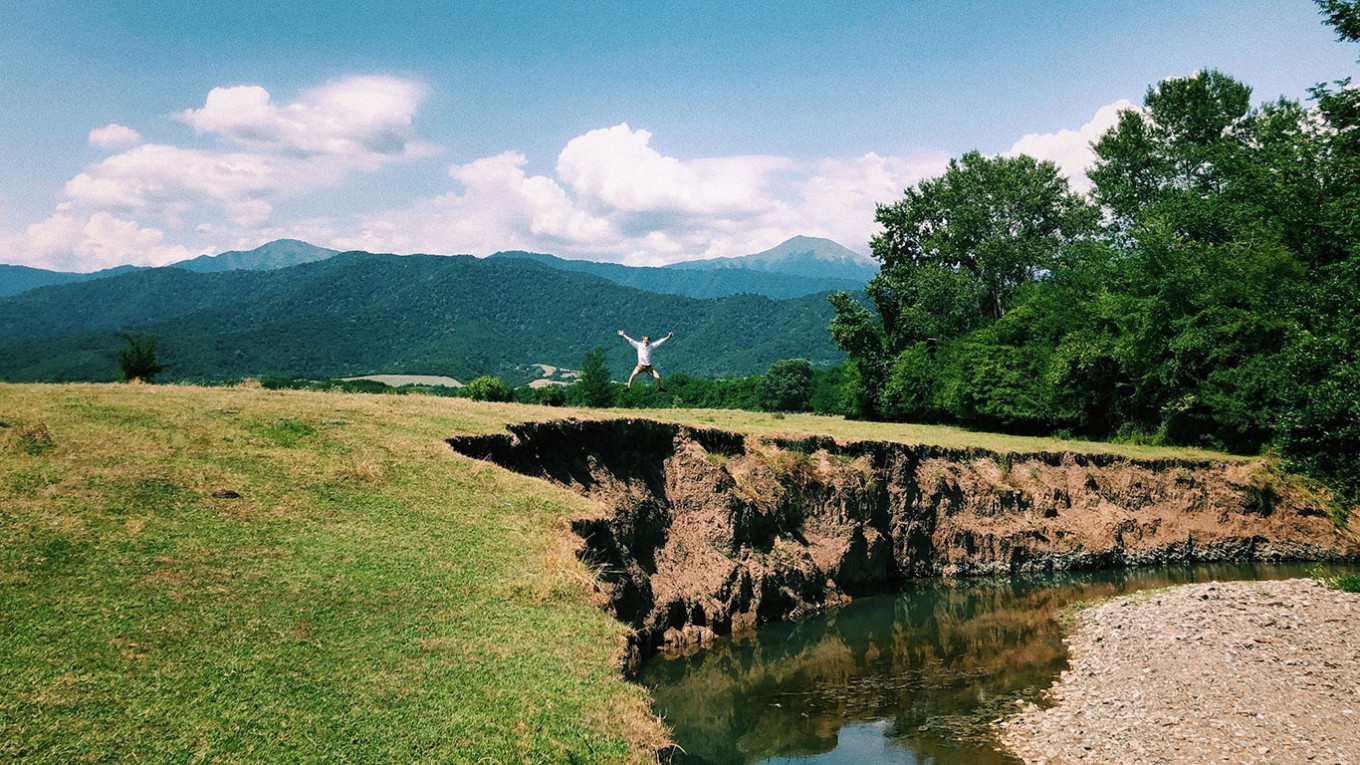
Many of the new emigres admitted that they are already facing some of the issues that have plagued Russians abroad for decades, including difficulty integrating and a longing to return to Russia.
“We just don’t mix with the locals,” said Naki, the journalist and blogger.
“We live in parallel worlds. Most days I go online with the hope that I can return rather than try to integrate.”
Emigre memoirs published during the Soviet Union were often filled with a sense of toska for Russia, a word that writer Vladimir Nabokov translated as “a sick pining, a vague restlessness, mental throes, yearning.”
Many of this generation’s exiles described the same feelings.
“My standard of living has improved, the weather is good, the rent is affordable and the food is cheap and delicious,” Naki said.
“But the physical things in life are not enough. My soul longs for Russia.”
A Message from The Moscow Times:
Dear readers,
We are facing unprecedented challenges. Russia's Prosecutor General's Office has designated The Moscow Times as an "undesirable" organization, criminalizing our work and putting our staff at risk of prosecution. This follows our earlier unjust labeling as a "foreign agent."
These actions are direct attempts to silence independent journalism in Russia. The authorities claim our work "discredits the decisions of the Russian leadership." We see things differently: we strive to provide accurate, unbiased reporting on Russia.
We, the journalists of The Moscow Times, refuse to be silenced. But to continue our work, we need your help.
Your support, no matter how small, makes a world of difference. If you can, please support us monthly starting from just $2. It's quick to set up, and every contribution makes a significant impact.
By supporting The Moscow Times, you're defending open, independent journalism in the face of repression. Thank you for standing with us.
Remind me later.



